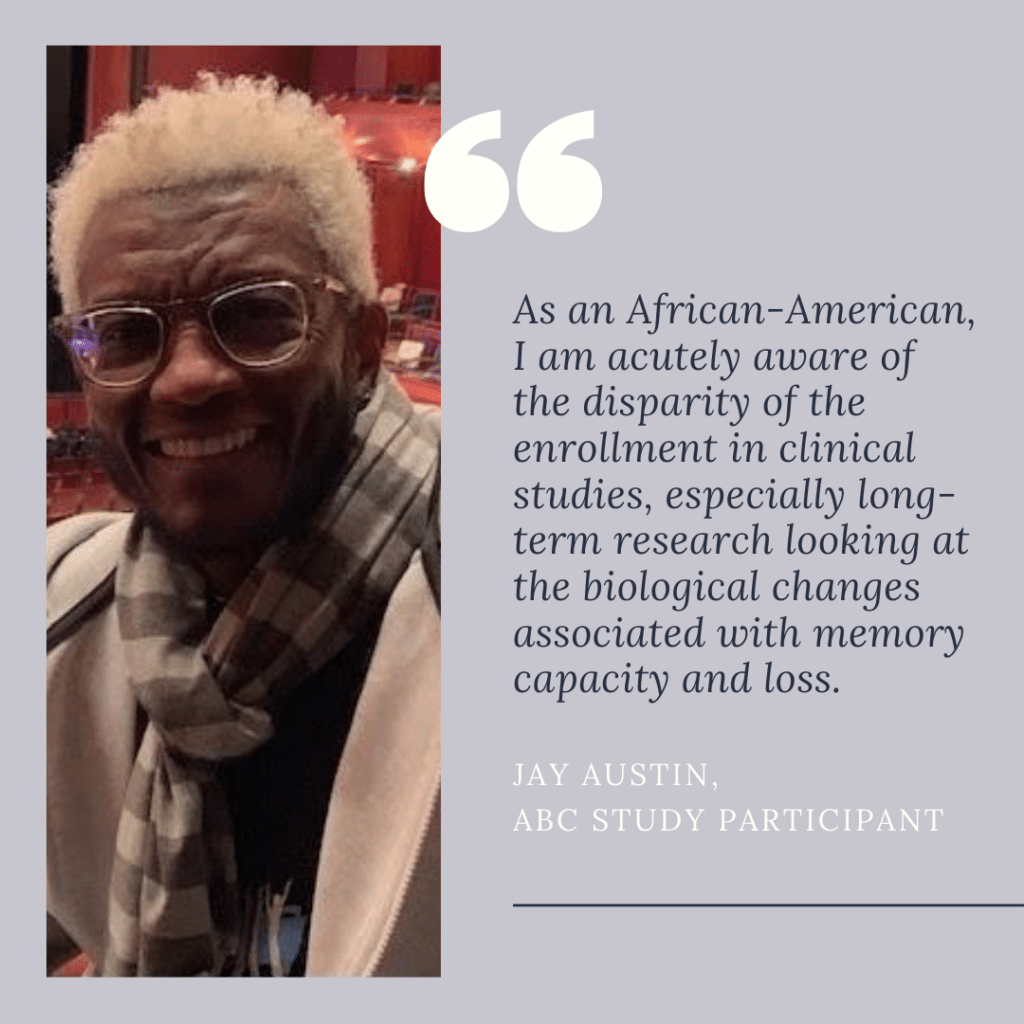
By Sharnita Midgett
Last month, the Aging Brain Cohort (ABC) study resumed in-person testing after a four-month hiatus. Jay Austin, 64, was the first study participant back in the MRI scanner.
Originally from New Jersey, Austin has worked as a senior-level administrator in many of the nation’s top law schools, including several in California. During his career, he spent two years working and living in Azerbaijan to assist in the establishment of a new university. When he is not traveling with his wife of 21 years, Tamara, reading historical non-fiction or visiting US presidential libraries, he is preparing for his next research visit at the Penn Memory Center.
Austin, who was previously enrolled in the ADNI 3 study, joined the ABC study in 2019. He spoke with Research Coordinator Sharnita Midgett about returning to the study in 2020:
What has your recent research visit been like?
“Every individual that assists in coordinating the scheduling and conducts the research has just been amazing! So helpful and thoughtful in staying in touch, advising of the process and necessary steps, as well as being available to accompany me throughout my entire time in the Penn facilities.”
What motivated you to come in recently for your visit?
“To maintain the necessary timeline schedule for the study.”
What was your recent MRI experience like?
How did it differ from your usual MRI experience?
“The MRI was very routine. The technician was great and explained everything that was required for the new protocol due to coronavirus. I felt completely comfortable, at ease and safe. The only difference was the need to wear one of the facilitates provided masks during the entire time in the room and in the MRI.”
Why are you interested in research?
“My interest and willingness to participate in the research is really twofold: personal and altruistic. Five years ago before passing away at age 86, my father was beginning to demonstrate signs of memory loss and his mother had similar changes towards the end of her life at age 90. My mother, who will be 90 this fall, has been suffering from the continuing loss of her memory for nearly a decade. Though neither parent has received a complete evaluation and actual diagnosis, it’s pretty evident what has happened.
Additionally, as an African-American, I am acutely aware of the disparity of the enrollment in clinical studies, especially long-term research looking at the biological changes associated with memory capacity and loss. Therefore, I was very excited to know that after participating in a study while living in California, I could continue in the research project at Penn.”
We welcome you to share your stories, thoughts, and questions. Please contact Research Coordinator Sharnita Midgett at sharnita.midgett@pennmedicine.upenn.edu